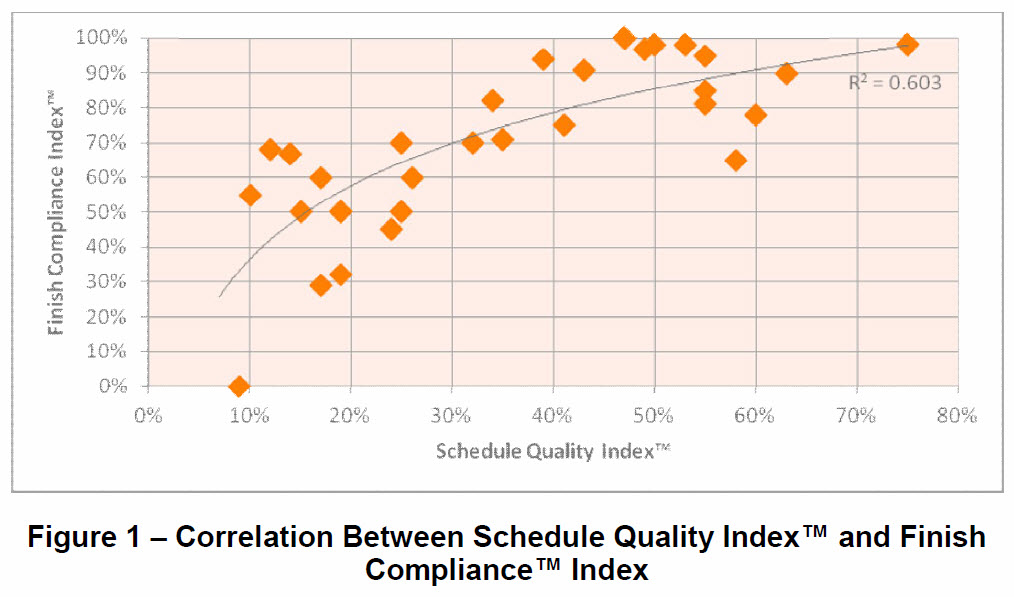Bad project schedules and how to tame them
The need for effective planning and scheduling has been recognised for well over 100 years. Projects fail when they overrun the allocated time and budget, and overrunning on schedule is a great way to make sure you also overrun on cost.
The elements needed to enhance the probability of project success are also well known, starting with a skilled project manager and team, with the necessary knowledge, skills and experience. The next layer of support to build success is making sure the ‘right’ project management tools, processes and methodologies are used; again these are hardly new.
Ensuring project stakeholders are managed, their expectations and/or perceptions are identified and managed, and their involvement sought as necessary.
- The timely management of risk (threats and opportunities).
- Ensuring alignment of outcomes to organisation strategy.
- Scope and costs are identified and managed.
- Ensuring appropriate and effective, planning and scheduling.
Schedules are useful in two key areas; the schedule’s primary purpose is communication, not control; after all, documents cannot ‘control’ anything! A useful schedule can influence decisions and actions by highlighting key decision points and the opportune time to make the decision.
The second key area is coordination. Projects involve a range of different resources that need to work on the ‘right activities’ in the ‘right sequence’ to support the work of other resources and optimise the overall delivery of the project.
Good schedules are capable of providing and assisting in coordination, control and stakeholder communication. But to be useful, schedules have to be technically correct, usable by the project team and used. This requires good planning, good scheduling and a culture within the organisation and project team that values effective time management. While culture is the key; no one will develop the habits and discipline needed to make use of a schedule if the schedules they are presented with are of poor quality.
Dr Dan Patterson has shown there is correlation between technically correct schedules and project outcomes (see ‘Proof of the blindingly obvious‘) and this effect is likely to be enhanced if the schedule is ‘owned’ by the project management team. Building this ‘ownership’ is one of the key skills of a good project scheduler.
So if you are a client, project sponsor, project review team member or portfolio manager, how can you test the quality of a project schedule before the project fails? The key is to ask the right questions!
Q1: Is the scheduler qualified?
There have been a range of certifications available for more than five years and new one emerging. The three most significant are:
- AACEi–PSP (construction/engineering/claims)
- PMI PMI-SP (PMO manager/controls manager)
- Guild of Project Controls (multi-faceted)
These certifications focus on the skills of a planner and scheduler, not their technical understanding of software tools – it does not matter how skilled a ‘software-jockey’ is if the person does not understand what they are trying to achieve.
Q2: Was the management team involved?
Ask the project management team! If the project management team cannot be bothered to work on development of its schedule it will not bother to use the schedule to run the project:
- Is it their schedule?
- Do they really understand it?
Q3: Is the schedule technically correct?
This is now the easiest element to check, and regular checking seems to drive improved technical performance. Use the available tools to run checks:
- Acumen Fuse
- Schedule Analyzer
- Schedule Inspector
Use the free references:
- DCMA 14 Point schedule assessment (embedded in the tools)
- GAO Schedule Assessment Guide
Q4: Is the schedule sensible?
This is more difficult to assess and, to a degree, subjective. Elements to consider include:
- Is risk and uncertainty properly managed? If there is no consideration of risk, the schedule will fail because no one can accurately predict the future.
- How was the risk modelling done?
- Is the level of detail appropriate for the current level of knowledge?
For major projects, an independent assessment may be worthwhile, one option is SCRAM.
Q5: How are resources managed?
This is only really important in the short term, but if resources are not carefully considered in the schedule, the document is simply a wishlist. One option of effective resource management is schedule density [PDF].
Asking these questions is one thing, providing adequate funding and support to allow the project team to create positive answers is another. When considering these options, remember:
- A good schedule will not guarantee project success
- But… a bad schedule will guarantee project failure, particularly on complex projects!
There’s no longer any excuse for bad schedules!
Access the tools and resources mentioned above, plus a range of other free resources


